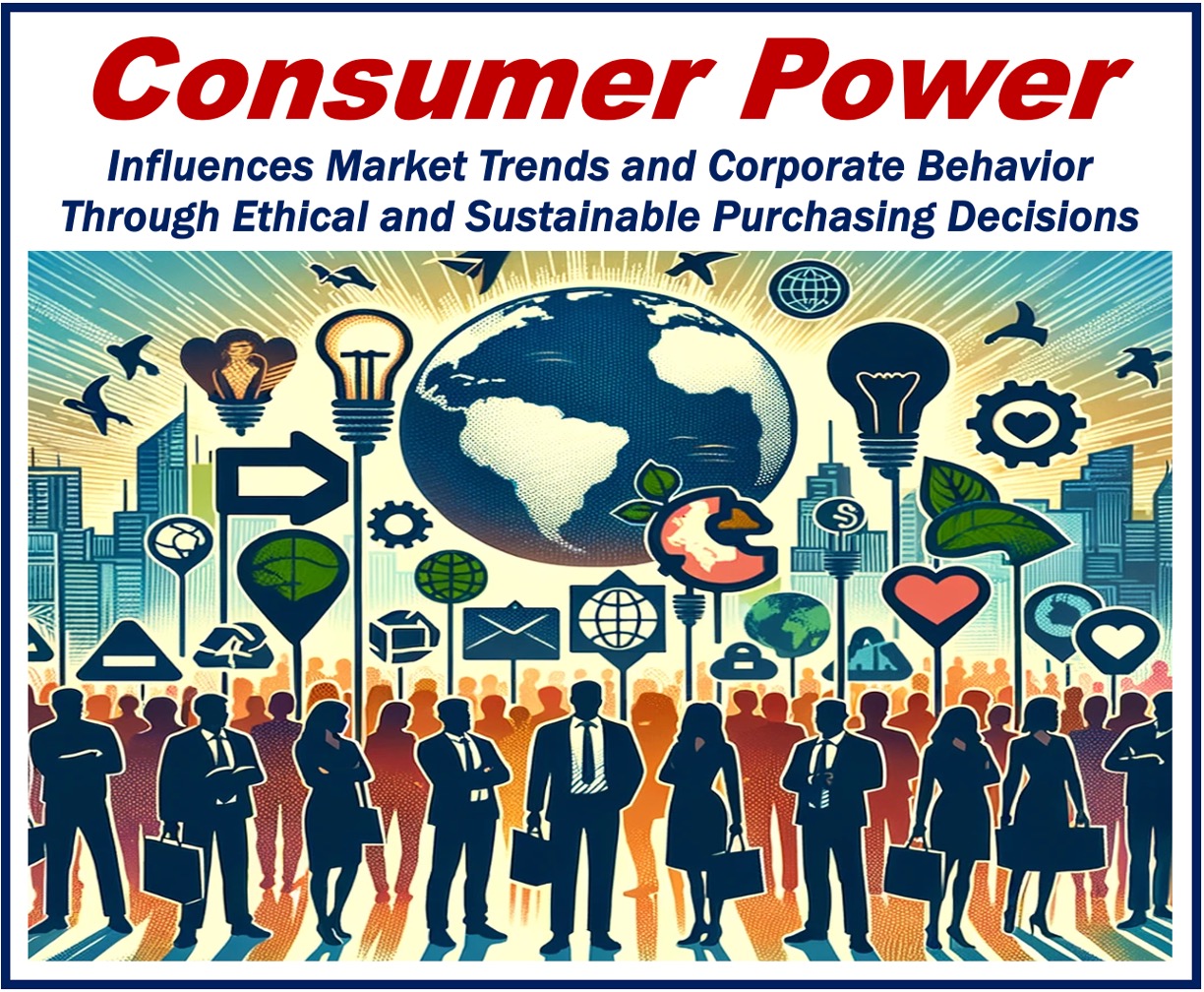The term Consumer Power refers to the influence and impact that consumers have on businesses and the marketplace in general. Through their purchasing decisions, buyers shape trends, products, and services.
Most of us live in countries whose economies are driven by the basic principle of market forces, that is, the forces of supply and demand. The businesses that thrive are the ones that meet the needs and wants of their customers.
When consumers collectively favor or reject certain products, companies must adjust their offerings accordingly.
This dynamic determines what is available on the market. It also influences the quality and pricing of goods and services.
Internet and consumer power
Since the advent of the Internet and the rise of social media, consumer power has grown significantly.
Today, we can share opinions and experiences regarding our purchases with a global audience. Individual consumers can now sway public perception and make demands more effectively.
Companies today are more accountable than ever. Customer satisfaction and feedback have become top priorities for business leaders and their teams.

Consumers more informed
As consumers, we are more informed about the impact that our purchases have on the environment, societies, and economies worldwide.
When a major multinational is discovered employing child labor, consumers can rapidly organize protests and boycotts, facilitated by the internet.
Companies must acknowledge the rise of consumer power and ensure their business practices are beyond reproach.
Consumer power – challenges
The overwhelming amount of information available on the Internet can make it difficult for us, as consumers, to make informed choices. The challenge lies in discerning the accuracy of the information we encounter. With the proliferation of misinformation and false claims online, it is crucial that we meticulously verify the accuracy of our sources.
In some parts of the world, online censorship significantly impedes consumers’ ability to conduct meaningful research by restricting access to a wide range of information.
With power comes responsibility
Sir Winston Churchill once said, “Where there is great power there is great responsibility.”
Consumers should wield their growing power responsibly. If a company needs to make adjustments to conform to consumer demands, it must have adequate time to do so.
The goal of consumer advocacy should be to encourage companies to adopt ethical practices, ensure product safety and quality, secure fair pricing, promote transparency and accountability, protect consumer privacy, and advocate for sustainable and environmentally friendly practices, rather than targeting them without just cause.
Summary
Consumer power is about the impact of collective consumer choices on the market. Consumers today have the power to drive change and improvement across industries.
Companies are increasingly sensitive to customer feedback and consumer opinions, recognizing that their success and reputation are closely tied to their ability to meet and exceed consumer expectations.
